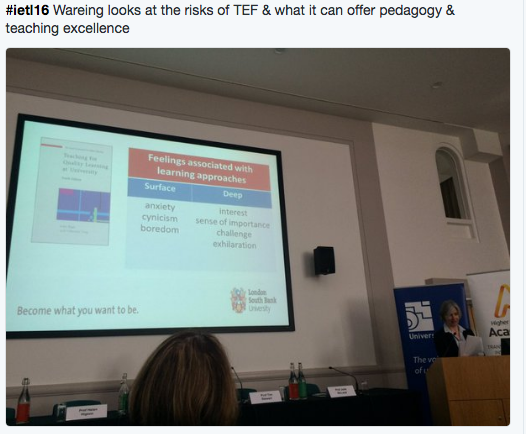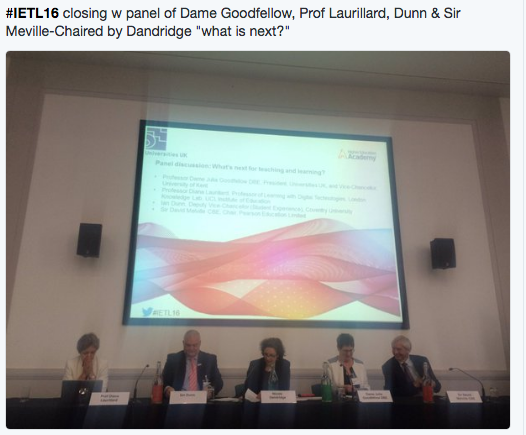 Today at Woburn House, London, Universities UK and the Higher Education Academy hosted the ‘Innovation and excellence in teaching and learning’ day conference.
Today at Woburn House, London, Universities UK and the Higher Education Academy hosted the ‘Innovation and excellence in teaching and learning’ day conference.
The conference kicked off with Nicola Dandridge, UUK’s Chief Executive, welcoming delegates, and questioning what the value of teaching is in the narrower context of the ‘consumer contract’ as well as newer UK reforms.
During the day, concepts such as developing an institutional approach to student engagement and realising the limitations of the current curriculum were explored.
To start, Dandridge proposed that universities can put forward a strong case about their role as leaders of innovation, while Professor Stephanie Marshall questioned what we mean by teaching excellence, emphasising that we should embrace diversity as well as the importance of globalisation in Higher Education.
Professor John Grattan spoke on ‘Achieving an institutional culture of innovation and excellence in teaching and learning’, where he explored the barriers to institutional change using Aberystwyth University as a case study. He pointed to morale as an important issue to address, saying that it is important to engage with staff to help lift morale and that neither micromanagement nor regulation work in changing institutional culture. Grattan also suggested that leadership is the answer to rebuilding confidence, and that community is key.
Professor Shan Wareing followed with a presentation which looked at the risk of TEF taking a ‘surface approach’ to the excellence of teaching, emphasising that excellence is actually the product of vision, innovation and support from surroundings.

The morning session ended with a panel debate questioning how innovation may thrive alongside excellence. On the panel sat Prof. Helen Higson, Prof. Janice Kay, Prof. Julie McLeod and Prof. Tim Stewart. The key point raised was that UK HE is moving towards a more risk-aversed approach at the expense of innovation, and that this environment may result in the UK being left behind. The panel also questioned what innovation actually means, highlighting the misconception of it being about producing something new to the world rather than meaning a change to practice. All on the panel supported the idea that social support and community is key, and that in a rapidly changing environment innovation is essential. Another take-home message was that implementing innovative ideas takes time, and may not benefit everyone at the same time. The fact that inconsistencies arise should not cast doubt on the idea itself.
The morning session then came to a close and was followed by networking and refreshments. The afternoon session began at noon, whereby a selection of workshops were offered, of which attendees could choose two. The sessions were titled as follows:
- Developing an institutional approach to student engagement in curriculum design
- Developing a truly inclusive curriculum
- Different dimensions of excellence: an international perspective
- Employability, old news, but are we getting it right? Developing an effective institutional approach to employability in Higher Education
The workshops were followed by presentations by Prof. Dame Julia Goodfellow and Sir David Melville, who later joined a panel with Prof. Diana Laurillard and Ian Dunn, to discuss ‘what is next’.

The conference provided a detailed insight into how different universities are integrating innovation into their strategies, and demonstrated the need for universities to take more risks.